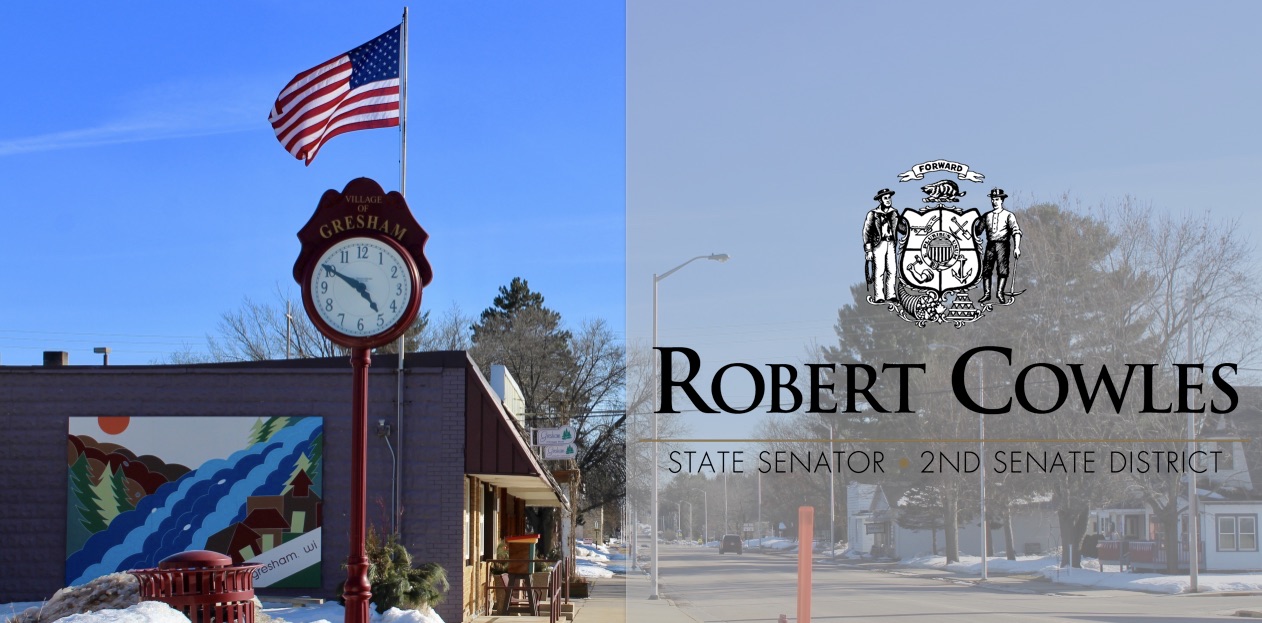|
Robert Cowles
Serving Wisconsin's 2nd Senate District
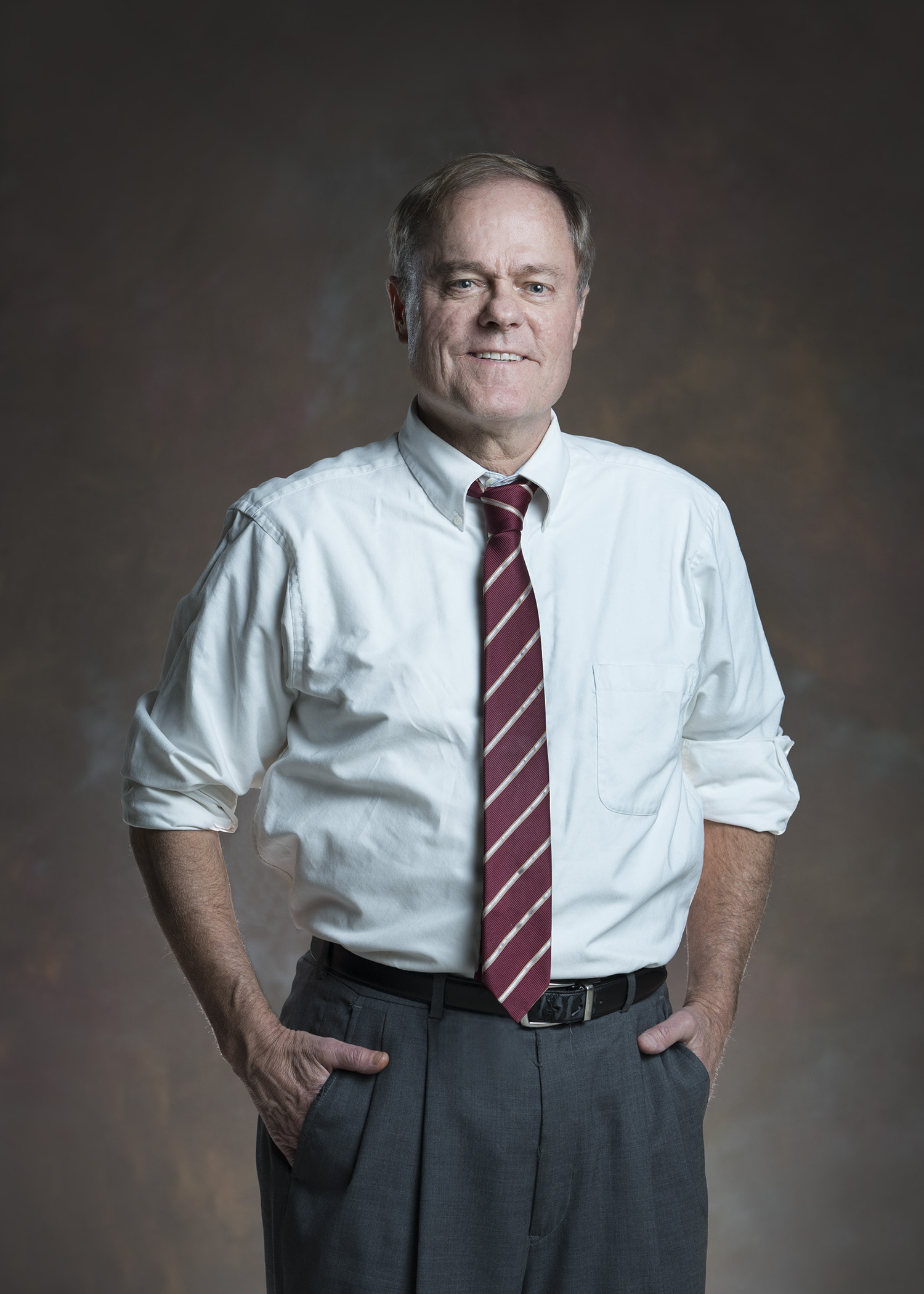



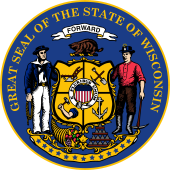

|
|
Quick Fact |
|
Here's a sweet fact: Wisconsin ranks 4th nationally in
maple syrup production. Did you know that tapping season
happens in early spring and production of fresh maple
syrup is happening right now?
|
|
Community Events |
|
One of my favorite things about being your State Senator
is getting to meet constituents out in the community at
some of our great local events.
The 2nd Senate District is also home to many great
events and attractions. Whether you're a visitor or a
life-long resident, you will not run out of things to do
and see in Northeast Wisconsin.
To find an event or attraction in your area, visit the
Greater Green Bay Convention and Visitors Bureau,
the Fox Valley
Convention and Visitors Bureau, the
Shawano
County Chamber of Commerce, or the
Clintonville
Area Chamber of Commerce. To find more public
events, visit the community calendars on
WLUK
News and the
Appleton
Post-Crescent.
|
|
Helpful Links |
|





|
|
|
Dear Friends and Neighbors,
Itís a nice break to step away from reviewing budget
analysis to take a few minutes to update you on whatís
been going on around the Capitol. Iíll talk more about
the budget below, but this is certainly not the only
thing happening in state government. Iíll discuss some
of the updates from a busy past few weeks around the
Capitol and in the district.
In this e-newsletter, I've included information on:
-
The release of three major audits
-
First bills of the session become law
-
Unpacking the budget process
-
Recent Natural Resources Committee hearings
-
UWGB regains program funding
-
Recent events I've attended around the district
-
And more
As always, feel free to
contact my office with any questions or concerns you
may have, and be sure to visit
my website and connect with me on
Facebook,
Twitter, and
Instagram for more regular updates from around the
2nd Senate District and in the State Capitol.
Thanks for reading!

Senator Robert Cowles
Proudly Serving Wisconsin's 2nd Senate District
|
|
Release of Three Major Audits |
|
The nonpartisan Legislative Audit Bureau has been busy
preparing for the recent release of three major audits.
In-turn, as Co-Chair of the Joint Legislative Audit
Committee, Iíve been busy reviewing these audits and preparing for the necessary follow-up on these
evaluations to learn more and ensure a proper and
necessary level of accountability and transparency in
our state agencies.
The first audit examined expenditures at the 36 adult
correctional institutions in Wisconsin. LAB found 62.8
percent of Wisconsinís total adult correctional
expenditures were for personnel. In addition, 13.3
percent of expenditures spent on wages was spent on
overtime. The total number of paid overtime hours
increased by 50.7 percent over the prior four fiscal
years, while turnover rates for correctional officers
rose to 26.1 percent during the same time frame. The
vacancy rate for all security positions increased from
6.7 percent to 14.0 percent during this period, with
vacancy rates among maximum-security facilities reaching
19.8 percent on average. The audit identifies several
initiatives DOC has attempted to try to retain staff
through wage add-ons, signing bonuses, job fairs, and
on-site training programs, though better data needs to
be collected to determine the effectiveness of these
different programs. However, the goal is still to reduce
staffing vacancies, turnover, and instances of excessive
overtime. Doing this would not only result in cost
savings, but ultimately a safer and more sustainable
work environment. To learn more about this audit, check
out the
press release on the audit, the
auditís summary, or a
story by the AP on the audit.
The second audit examined the financial management and
operations of the UW-System and recommended a number of
changes to ensure more accountability and transparency.
These recommendations include considering using program
revenue balances to offset potential rate increases for
auxiliary services (such as housing) and developing or
revising policies and guidelines for new personnel
systems to ensure UW institutions are not providing
merit-based salary adjustments to personnel not meeting
performance expectations. Additionally, LAB found that
the UW-System took some steps but is not in full
compliance with recommendations from a previous audit on
the relationships between the UW-System and affiliated
organizations. While the UW-System has taken some steps
in the right direction on improving these relationships,
this analysis showed once again that more follow-up will
be required to ensure smart practices are employed when
using student and taxpayer funds. I encourage the
UW-System to revise its administrative policies to
reflect recommendations from LAB in a swift manner. To
learn more about this audit, check out the
press release on the audit or the
auditís summary.
The third audit was a biennial audit of the Wisconsin
Economic Development Corporationís operations. In FY
2017-18, LAB evaluated WEDCís administration of 30
programs through which it allocates or awards tax
credits, grants, and loans. LAB also analyzed WEDCís
revenues and administrative expenditures. WEDCís
information indicated that recipients of 68 tax credit
and loan awards created 2,084 of 5,970 contractually
required jobs (34.9%). LAB found WEDC did not consistently comply with
statutes and its contracts because WEDC awarded tax
credits to recipients that created or retained jobs
filled by individuals who did not perform services in
Wisconsin or were non-Wisconsin residents, and because
it annually verified information in the performance
reports submitted by a sample of award recipients in
only one of the two years of the audit period. Itís
disappointing that while WEDC makes progress in certain
areas LAB continues to find new emerging issues audit
after audit. The inability of WEDC to comply with state
statutes and guidelines has put taxpayer funds at risk.
This isnít just an issue of unaccountability, but shows
the desired outcomes of these programs have not been
consistently achieved. Itís my hope that, through the
Audit Committee process and possibly the Legislative
process, we will be able to address these issues. To
learn more about this audit, check out the
press release on the audit or the
auditís summary.
|
|
First Bills of the Session Become Law |
|
On the first day of May, the Governor came to Neenah
to sign two bills I actively backed. The first bill
helped to give Wisconsinites a better piece of mind
during automotive transactions.
Senate Bill 3 simplifies DOTís licensure review
process for auto dealers and others involved with
auto transactions while still ensuring due process.
With this new law, we provide DOT the ability to
better protect Wisconsinites from fraudulent
activity. Thanks to Representative David Steffen
(R-Green Bay), Senator Andrť Jacque (R-De Pere), and
Senator Dave Hansen (D-Green Bay) for your
partnership on this effort. To learn more,
check out this article from
WBAY.
On the same day,
Senate Bill 1 was signed into law to name the
41/10/441 interchange after the late Senate
President Mike Ellis. I was proud to be able to
stand with my late friend and former colleagueís
family and friends at the bill signing to name this
Winnebago County interchange after this once in a
generation elected leader. Naming the interchange
requires federal approval before signs can be
posted, but it shouldnít be long before the signs
are posted. Iím pleased to have joined Senator Roger
Roth (R-Appleton), Representative Mike Rohrkaste
(R-Neenah), Representative Amanda Stuck
(D-Appleton), and other colleagues from the Fox
Valley area to author this bill. Check out
this article from the
Post Crescent or
WHBY to learn more.
Senate Bill 4, which I authored with
Representative John Spiros (R-Marshfield), also
recently became law. This legislation cleans up
antiquated statutory language to let Wisconsin
municipalities utilize new products to better
administer their parking enforcement and make it
more user-friendly for the habitual parking violator
when faced with an immobilization device. This bill
was supported by local government and law
enforcement groups.
Finally, I attended the Governorís bill signing as supporter
and as a co-sponsor of
the bipartisan
Senate Bill 19, authored by Senator Fitzgerald
(R-Juneau) and Representative Jagler (R-Watertown),
to remove the R-Word from state administrative code.
This new law will prevent parents from having to
fill out forms designating their child with this
regressive term. Check out a photo from this bill
signing below.
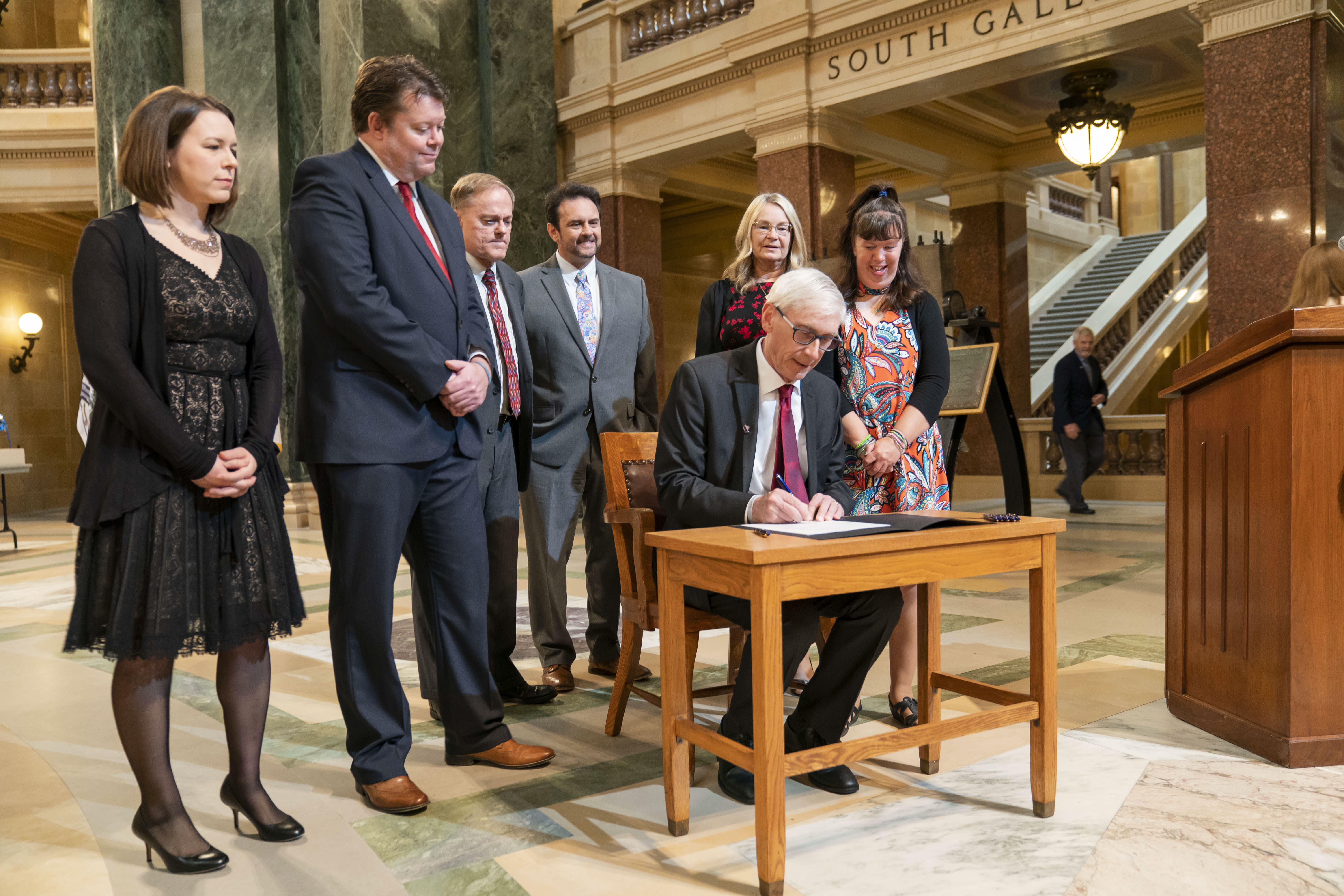
|
|
Unpacking the Budget Process |
|
As I discussed in the opening, the state budget
process is now well underway with the public
hearings around the state having been concluded. The
final public hearing held by the Committee was in
Green Bay on April 24th, and it was my pleasure to
be able to attend the hearing and listen to
constituents and other area residents.
The first executive session of the Committee was
held last Thursday. While I am not a member of the
Joint Finance Committee, which is the stateís budget
writing committee, I will be diligent in ensuring
that our stateís financial future remains strong and
that Northeast Wisconsin continues to have a strong
voice advocating for it in this process.
I want to unpack the state budget process as the
budget is always the largest bill of each session
and is a key topic of discussion in state government
for months. While weíre just beginning the 2019-2021
biennial budget process, the budget process is
overall cyclical. This means that between the
Legislature and the Administration, the process of
either drafting, implementing, or analyzing the
budget does not really end. To illustrate how the
steps of the budget process are cyclical in nature,
Iíve included a chart below.
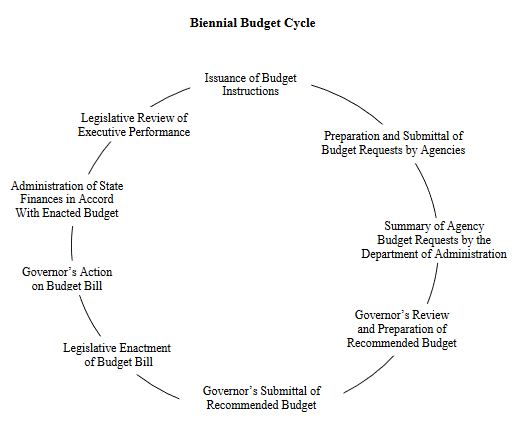
Currently, we are near the bottom of this cycle,
between the Governorís submittal of recommended
budget and Legislative enactment of the budget bill.
However, there is a lot of work that is incorporated
into this step.
The Joint Finance Committee is the portion of the
Legislature responsible for assembling the final
budget which will be voted on by full Legislature to
enact the budget bill. This responsibility includes
being briefed on each portion of the budget
in-person and through written analysis by the Joint
Finance Committee, weighing feedback theyíve heard
from the public and other Legislators, and voting on
each budget item or adopting alternatives to the
proposed budget. In this process, they will vote on
hundreds of different budget motions to ultimately
create a final budget to be voted on.
Once the Legislature has sent a budget to the
Governor and the Governor has taken his action, the
Legislatureís primary role in the biennial budget
process is concluded. However, it is important to
note that due to the cyclical nature of the budget
process, actions in this budget will impact our
future fiscal standing. An
analysis from the nonpartisan Legislative Fiscal
Bureau projected that the state would face a
$1.96 billion budget shortfall to start the
2021-2023 biennium if the Governorís budget were
adopted as proposed. This budget shortfall is also
known as a structural deficit. Building this budget
on unsustainable funding levels creates the
potential for future budgetary issues as it has in
the past.
The funding being debated and discussed in the
budget process is your money, which is why itís
important to keep you all updated on how this
process works and where we are in the process. While
this is only a very brief overview of the budget
process, I hope this helped to illustrate how
tedious and how important the budget process is.
If you want to take a deeper dive into the state
budget process, Iíd recommend you read 2019
Informational Paper 73 from the nonpartisan
Legislative Fiscal Bureau at the link below:

|
|
Recent Natural Resources Committee Hearings |
|
As Chair of the Senate Natural Resources and Energy
Committee, I have the opportunity to hear bills
related to maintaining or improving Wisconsinís pristine outdoors while working in cooperation with
Wisconsin sportsmen and women, local governments,
and the business community. In the past month, weíve
held three committee hearings covering a number of
different topics that Iíll discuss below.
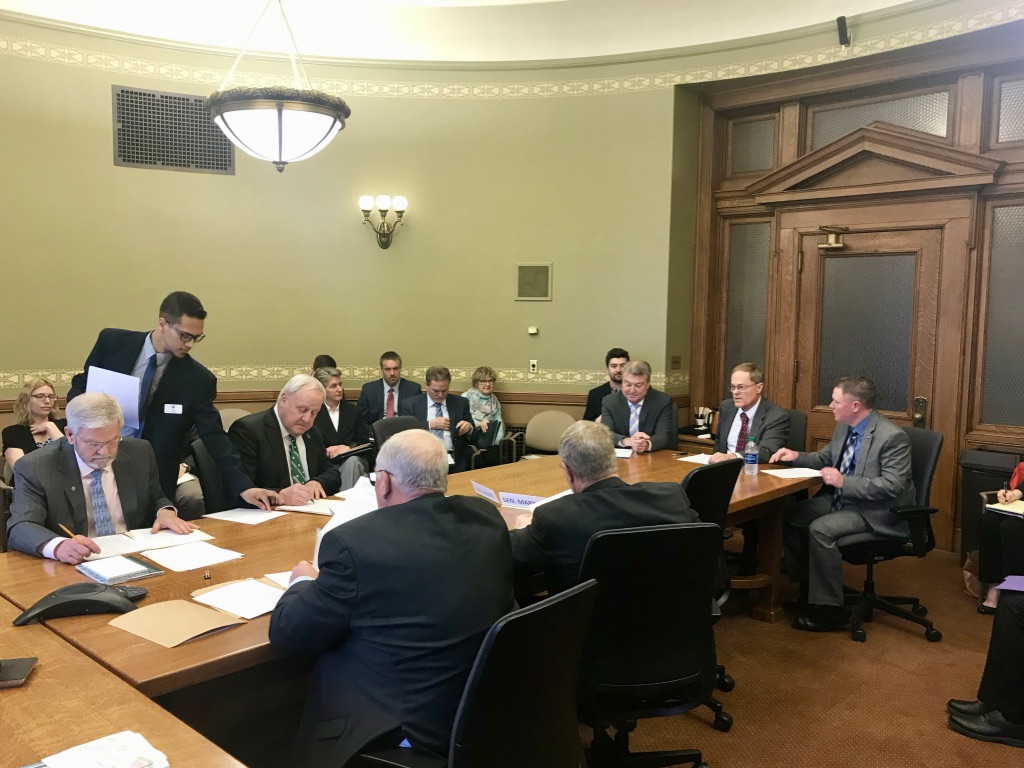
-
Senate Bill 31, which Iíve authored with
Representative Krug (R-Nekoosa) and Senator Testin
(R-Stevens Point), would divert the entirety of the
annual agricultural permitting fees for large farms
from the general fund to the DNRís segregated
account to help address the wastewater permitting
and inspection backlog. This bill was heard by the
Committee.
-
Senate Bill 85, which Iíve authored with
Representative Horlacher (R-Mukwonago), would
provide disabled veterans with a discounted rate on
the DNRís Conservation Patron license, lining the
price up with other license discounts offered to
those who sacrificed in service to our nation.
Below, Iím pictured with Al Labelle from Disabled
American Veterans who testified in support of SB 85.
This bill was heard and voted out of Committee 5-0.
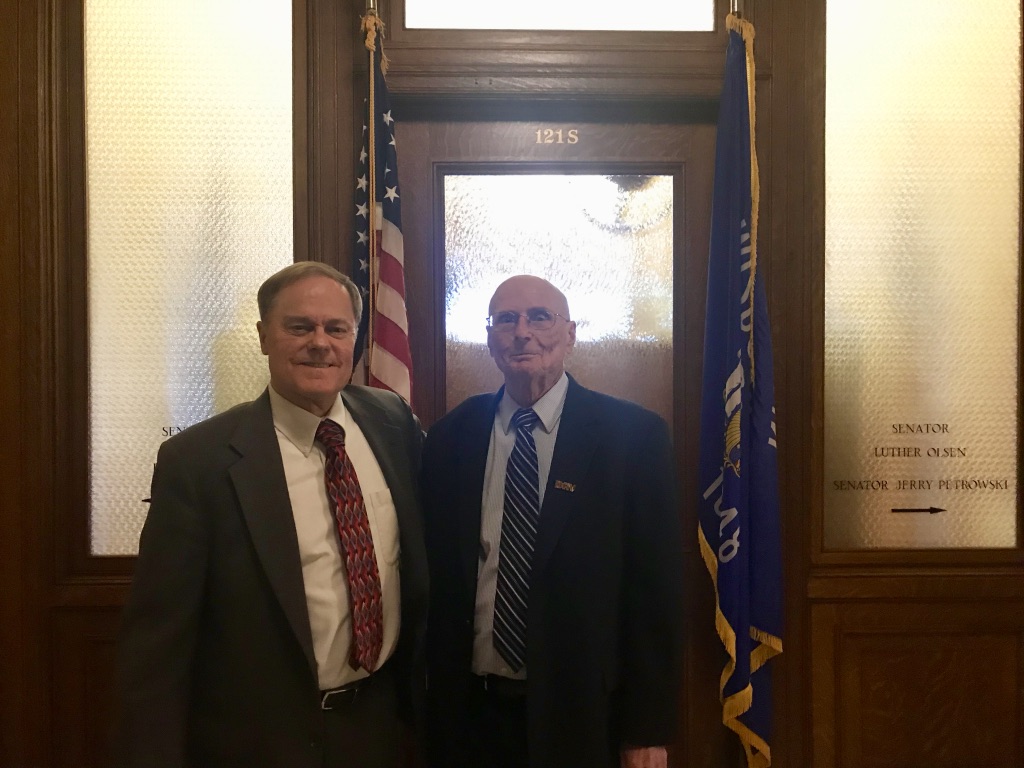
-
Senate Bill 125, which Iíve authored with
Representatives Summerfield (R-Bloomer) and Kitchens
(R-Sturgeon Bay), would protect the health and
safety of State Park visitors by using unobligated
Stewardship funds from prior years to upgrade $5.2
million worth of backlogged water infrastructure
projects in some of the most popular State Parks.
This bill would also provide $300,000 in additional
expenditure authority for temporary staffing and
other maintenance activities in State Parks. This
bill was heard and voted out of Committee 5-0.
-
Senate Bill 137,
which is authored by Senator Testin and
Representative Kurtz (R-Wonewoc), provides $10 million to help private well
owners have access to safe, clean drinking water by
creating a grant program to pay a portion of the
cost for installing a filtration system or repairing
or replacing an existing well. This bill was heard
by the Committee.
-
Senate Bill 169,
which is authored by Senator Wanggaard (R-Racine)
and Representative Tusler (R-Harrison), creates
a more flexible release schedule for wetland banking
mitigation credits and creates statutory certainty
to ensure that wetland mitigation is done closer to
the site of the impacted wetland. This bill was
heard by the Committee.
|
|
UWGB Regains Program Funding |
|
The Joint Finance Committee approved an effort last
week that I supported with Representative John Macco
(R-Ledgeview) on behalf of the Oneida Nation and
UW-Green Bay to restore a $247,500 annual payment
from the tribal nationís gaming taxes to the
university for first nations studies programming.
This is a common-sense budget motion that Iím glad
to see approved. Check out the Fiscal Bureau paper on
this motion on the
Legislatureís website.
|
|
Recent Events Attended |
|
I have the opportunity to attend a number of community
events each week. These events are central in my role as
an elected official as they allow me to stay up-to-date
on the latest news from businesses, non-profits, and
local governments. I also get to welcome dozens of
residents from Northeast Wisconsin into the Capitol each
week as they come to my office to talk about the issues
important to them in their professional and personal
life. Here is just a sampling of some of the events Iíve
recently attended around the district and meetings Iíve
had in the Capitol:
-
It was a pleasure to be able to celebrate
Georgia-Pacificís 100th anniversary of their
Broadway Mill in Green Bay with the company and
local leaders. While consumer preferences and
product development has changed a lot over the past
century, GPís commitment to our region has remained
strong.
-
It was good to be able to celebrate the National Day
of Prayer on May 2nd with members of the community
at the KI Convention Center. Thank you to the Leap
of Faith Group for hosting this event every year.
-
I enjoyed speaking to the Brown County Home Builders
Association at their recent Bringing Housing Home
Breakfast.
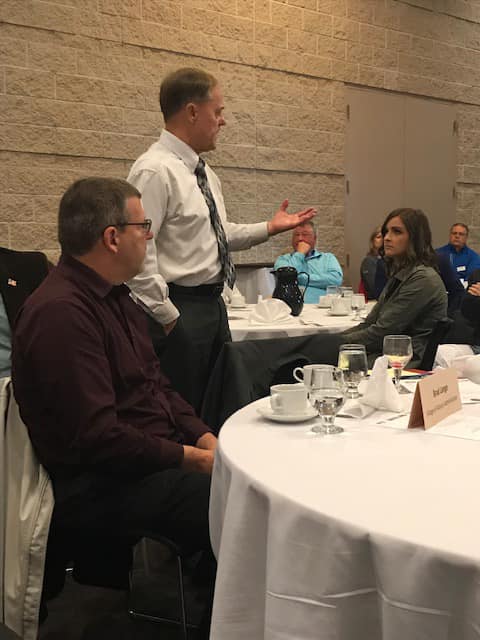
-
I recently attended an informative Community
Conversation at Green Bayís Heartland Pizza Company
with local business leaders looking to learn more
about the communal and financial benefits of
incorporating individuals with disability into the
workforce. Iíve supported efforts in the past to
this end, and continue to support integrated
employment.
-
The Young Professionals network in the greater Green
Bay area rivals that of similar organizations
throughout the state and even the region and is
crucial in recruiting and retaining young employees
for local employers. I attended a Current YP's event recently to meet some local
professionals and support this organization.
-
The state VFW selected the Freedom VFW Post 7692 and
Auxiliary and the Town of Freedom to host the annual
Loyalty Day Celebration. It was a pleasure to be
able to join them for the parade and program. The
town and Freedom VFW did a good job hosting!
-
The Brown County Veteranís Memorial Arena has been
standing for about sixty years in our region,
hosting countless sporting events, concerts, monster
trucks, and other special events. Many residents
from throughout the region have numerous memories in this arena, but those same residents
also recognize the age and that a newer facility is
needed to continue drawing those events to Northeast
Wisconsin. I attended the goodbye ceremony for the
arena recently. To read about some of the events
that took place here, check out this
Green Bay Press-Gazette article.
-
The Task Force on Water Quality, which I am a member
of, was on the road for the first public hearing
outside of the Capitol last Wednesday. The hearing
was in Lancaster in the Southwest corner of the
state, and started with a few invited guests before
we heard testimony from members of the public. More
meetings throughout the state, including one in
Green Bay, will take place this summer and into
early fall.
-
On Friday, I attended the Howard-Suamico School
District Legislator Roundtable. As always, itís
informative to hear from local leaders in our
schools on what issues are important to them.
|
|
In Other News... |
|
Here are some other stories I wanted to share with
you:
-
Clintonville Police Chief Jim Beggs
announced earlier this year that heís retiring
after 44 years on the force in his hometown. I want
to thank Chief Beggs for his many years of service
to his community, and wish him all the best in
retirement.
-
Kaukauna High School was one of eight schools to
recently receive a national award for top Career and
Technical Education programs. This national
recognition further reaffirms that Kaukaunaís
Manufacturing Program, run in partnership with Fox
Valley Tech, is well equipped to prepare students
for high-demand careers in manufacturing through
hands-on experience and rigorous coursework. Learn
more
here.
-
Last week,
it was announced that Wisconsinís tourism
industry continued to grow in 2018 as the industry
was valued at $21.6 billion, a 5% increase from the
year prior, as a result of 112 million visitors. The
tourism industry supports nearly 200,000 jobs and
generates $879 million in state tax revenue and $703
million in local tax revenue. This is fantastic
news!
-
Today kicks off National Police Week, an annual
celebration of the brave and dedicated law
enforcement officers who protect and serve us in
Wisconsin and throughout the United States. If you
see a police officer this week, please take a moment
to thank them.
-
Good nurses are the foundation of Wisconsinís strong
healthcare industry. Last Monday was National Nurses
Day, the perfect opportunity to recognize the
contribution that nurses have in keeping Wisconsin
healthy. Thank you to all of the nurses in Northeast
Wisconsin!
-
Last week was also National Small Business Week, one
of the best times of the year to explore and
patronize more of the many great small businesses in
Northeast Wisconsin. Shopping local helps to keep
more money in the community and revitalizes Main
Street. Be sure to check out more local businesses
year-round in your community and in neighboring
communities.
-
National Prescription Drug Take Back Day was held a
few Saturdayís ago, but just because you missed this
perfect opportunity to clean out your medicine
cabinet doesnít mean you canít still properly
dispose of unwanted prescription painkillers and
other medications. To find a disposal site near you
open year-round, visit the
Dose of Reality website.
|
|
